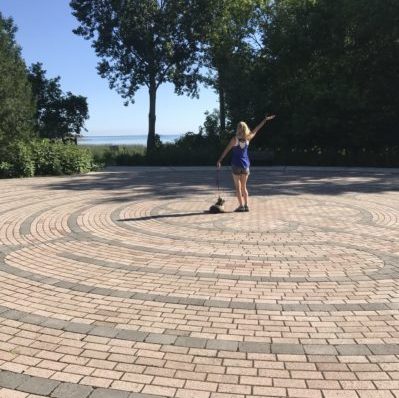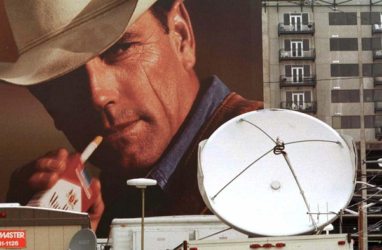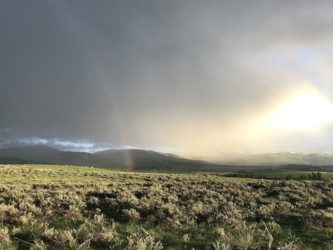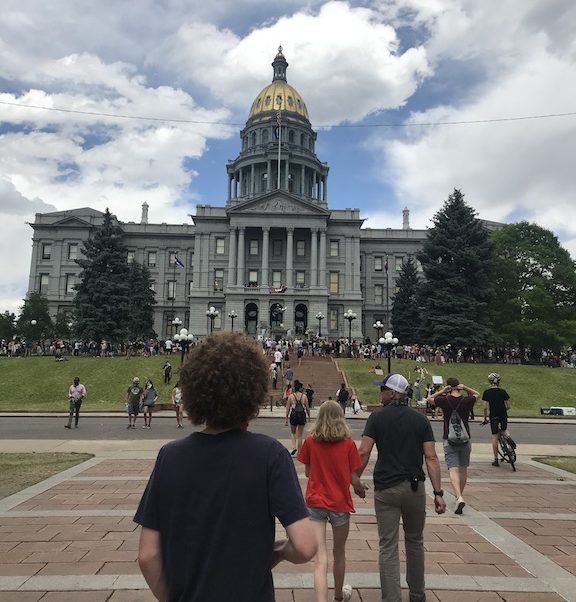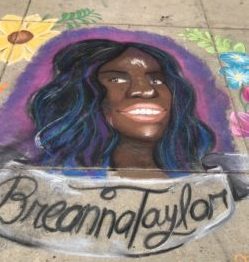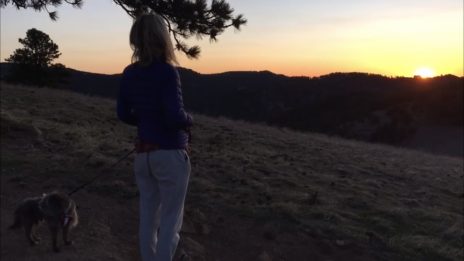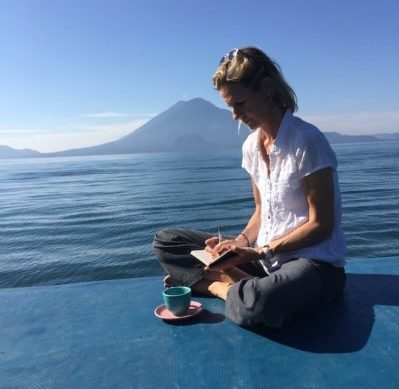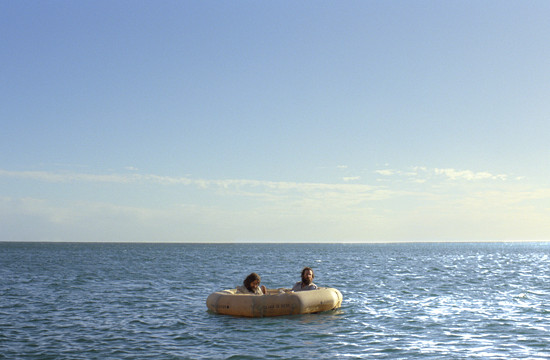Out on a walk with Leo the dog, I came upon a big, beautiful labyrinth made of carefully chosen bricks and stones. It looked inviting, like something I had to do. But part way in, I’m sure the dog thought, Why do we keep going around in circles over here when the squirrels and ducks are over there? And I thought, This is taking a long time. I have a lot to do today. Can I sprint through a labyrinth?
I stopped and took a few deep breaths, scanning for an easy-out. Leo sat down. And in that little sliver of calm, I decided to stay in the labyrinth. I thought, My to-do list can wait. Leo can wait, too. I’m here now. I started walking the labyrinth’s bent path again. But I couldn’t focus. My mind kept spinning on my latest health challenges.
This week I found out I need brain surgery, on the fourth anniversary of those first surgeries on my skull. Then yesterday I learned that my son broke five bones in his foot. Knowing that we both might need operations during COVID and that we will be apart for another five weeks has sent me into a small tailspin with the big emotions of a mama bear who cannot care for her young.
But as I walked the labyrinth, certain that I was doing it wrong by not being meditative, it started to work on me anyway. I walked the turns and realized, This is my life. It is not straight. It is this labyrinth: curved, cyclical, full of turns and uncertainty. The problem isn’t the shape of my life, but the size of my expectations. I expected my life to be more straight and clear by midlife. But that has not been my experience. And yet that has not changed its quality or beauty. It is still magnificent.
So I kept walking, and Leo came right along with me. Before I knew it, I was standing in the center. I was home. I felt relieved, confident, and calm. Leo naturally relaxed and lay down. I noticed that the way out was back the way I came. I thought, I know how to do this. Back through surgery and radiation and recovery. I ran back, laughing. Leo liked this part and started leaping a little. I know how to do surgery. I know how to recover from surgery. I know how to heal with radiation. I am here. I am still here. I will be here for a long time to come. You can find me riding the hairpin turns, one at a time, always bending home.
Love,
Susie

